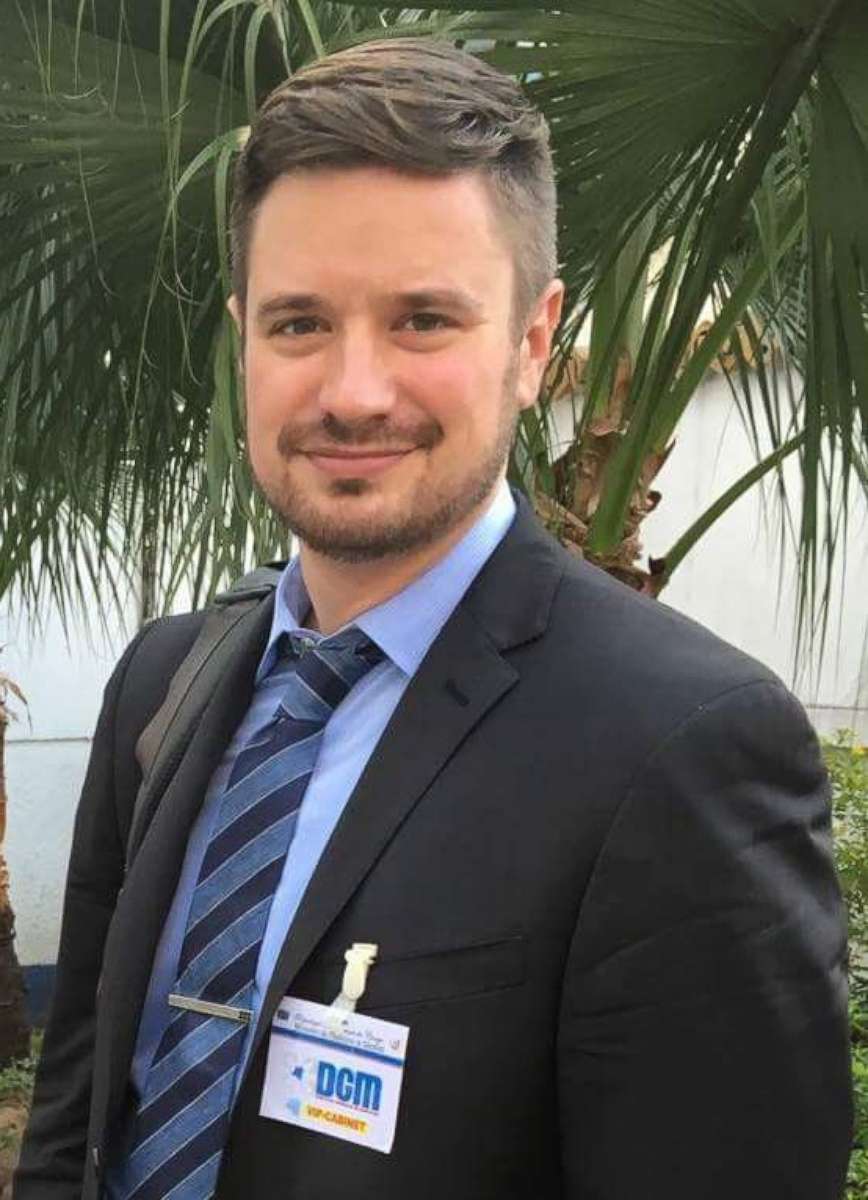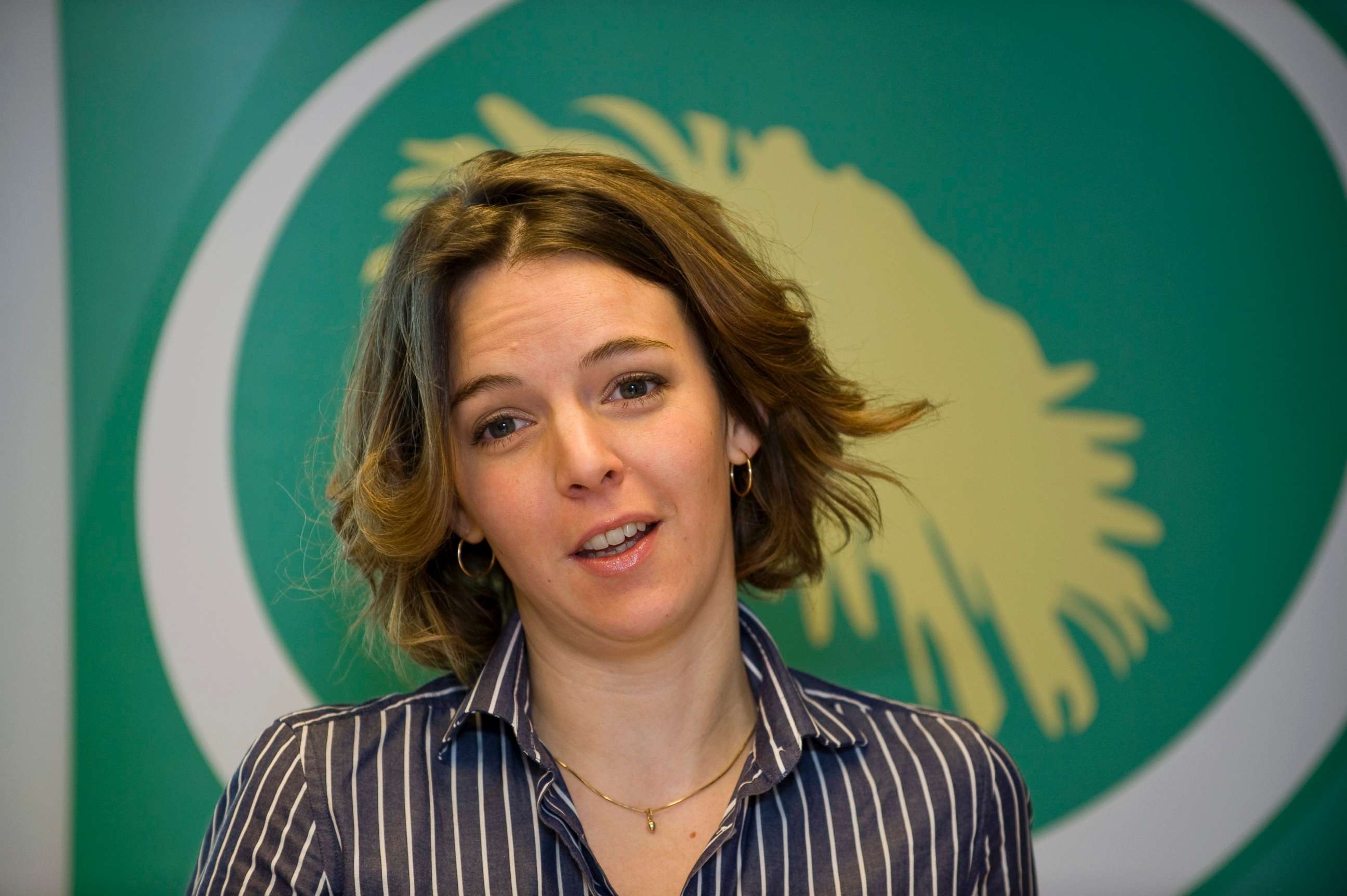5 months after an American was killed in Congo, it's still unclear who's responsible
The United States has called for a full, international probe.
— -- More than five months ago, two United Nations experts, one of whom was American, were murdered in the Democratic Republic of the Congo. The United States has called for a full, international investigation and the American man’s parents are pushing for answers. Congolese officials have arrested around a dozen suspects, but some observers believe Congolese security forces may be involved in their deaths.
The killings
American Michael Sharp and his Swedish-Chilean colleague, Zaida Catalán, had traveled to Congo’s Central Kasai province to look into armed groups and sources of violence in the region, as well as reports of children involved in conflict. As members of a UN “Group of Experts” set up to monitor UN sanctions in the DRC, they reported to the UN Security Council; Sharp specialized in armed groups, and Catalán in humanitarian issues.
On the morning of March 12, the pair departed their hotel in the city of Kananga, passing through several checkpoints en route to the town of Bunkonde, according to a confidential UN report on the killings. A Congolese interpreter and three Congolese motorbike drivers accompanied them, the report said, which was obtained by ABC News.
But they never made it to their destination.
The group was stopped near the village of Moyo Musuila, after which a phone call was made from Catalán’s iPhone to her sister in Sweden, according to the report. Her sister just heard foreign voices, and she and her mother became concerned and alerted UN headquarters in New York, the report said.
After two weeks of searching, two bodies were found in a shallow grave on March 27. They were quickly identified as Sharp, 34, and Catalán, 36.
A video recording emerged showing their execution, while the pair's interpreter and drivers were never found, the UN report said.
It was the first time members of this UN “Group of Experts” had been killed in the line of work, according to the the UN secretary-general's spokesperson's office. The group had been operating in Congo since 2004.
The investigations
After the experts’ deaths, the United Nations set up a body called a Board of Inquiry to look into what went wrong, as it has done in the past when UN workers have been killed. In mid-August, a five-page executive summary of the board's findings and recommendations was provided to the Security Council and released publicly, while the longer version was kept confidential.
The six-person board said in its report that “the violent acts of a group of Congolese perpetrators, likely militia members from the Kasai province, were responsible for” Sharp's and Catalán’s deaths and likely those of the interpreter and drivers, too. It said there was “a reasonable likelihood that the murders were done after consultation with the local chief and possibly other actors.” It also considered the possibility the experts were robbed in the process.
The report, which relied largely on interviews and the execution video, dismissed “information circulating regarding the possible involvement of various government individuals or organizations” as lacking proof, although it added “that an absence of evidence however does not preclude the possibility that others are involved.”
Additional “investigations and judicial processes” were necessary to determine who was behind the murders, the report said.

The board praised the United Nations’ response as “capable, timely, well-coordinated, and caring” and lauded the organization’s security protocols. But it criticized the Group of Experts, saying it operated outside those protocols with a misguided sense of independence from UN rules and regulations.
While the board said that it “did not believe that the actions of either Mr. Sharp or Ms. Catalan contributed to the outcome,” it also noted that their decisions “put them in a position of not having the necessary levels of security” required by UN protocols, which “could have made it much more difficult or ultimately impossible for the local actors to have stopped them, accosted them and ultimately murdered them.”
Their decision to go where they did using non-UN vehicles and without a UN security escort, the board said, “while not the cause of the incident, were factors that allowed bad actors to stop the vehicles and murder" them and, likely, the others with them.
Meanwhile, Congolese officials have said they have arrested around a dozen suspects, two of whom will face trial, according to The Associated Press.
The FBI is conducting its own investigation, as are Swedish police and prosecutors.
Unanswered questions
Sharp’s father, John Sharp, criticized the UN board’s report, telling ABC News the investigators lacked evidence to back up their conclusions.
“We were afraid they would do the oldest trick in the book and blame the victims, and there was some of that,” John Sharp, a history and Bible professor at Hesston College, in Hesston, Kansas, said.
He disputed the board’s suggestion that his son and Catalán were in over the heads, saying his son’s five years of experience working in conflict resolution in violence-plagued regions of the DRC had taught him how to build connections with armed militia groups.
“He was always careful, and he was meticulous, so to have any type of an inference that he might not have been careful enough, we reject out of hand,” John Sharp said.
The FBI finally cracked the encryption for a database on Sharp’s laptop this month, something the United Nations had previously failed to do, according to his father. The UN report said Sharp and Catalán used personal computers with encryption for which the United Nations did not have the keys.
John Sharp said he hoped combing through his son’s database, which contains information about his work in Congo, would provide a fuller picture to investigators; without that data, he said, the board’s conclusions were “premature and inconclusive.”
In Sweden, police were analyzing the contents Catalán’s laptop, national police spokeswoman Malin Näfver told ABC News. The prosecutor leading Sweden's investigation, Kristina Lindhoff Carleson, told ABC News on Tuesday she could not comment on how long the inquiry would take.

Left unanswered by the UN probe was what motive may have prompted the crimes.
“We cannot rule out Congolese government involvement,” John Sharp said, “because the militia group had nothing to gain from doing this.”
The UN board noted in its report that some people it interviewed pointed to a “conspiracy” involving the Congolese government, citing phone records connecting the experts and the Congolese government, as well as the belief that a lawyer for one of the defendants was linked to Congolese intelligence services. But it said information circulating about possible government involvement did not contain “proof of intent or motive on the part of any individual(s).”
Jason Stearns, a former coordinator of the Group of Experts in Congo who knew Sharp well, told ABC News the board interviewed him and explained to him at the time that their focus was more on whether UN rules and regulations were followed and not determining who was ultimately at fault for the killings.
Discounting allegations about government involvement without fully examining those accusations was “bizarre,” Stearns said.
“Why would you make even such a statement unless you thought that the Congolese government was definitely not involved?” Stearns said. “Just leave it out.”
Congolese military prosecutor Col. Odon Makutu said in May there was not any evidence of government involvement, according to Reuters. "For the murders of the expatriates, no agent of the security forces has been implicated," he told reporters in Congo's capital, Kinshasa, Reuters reported.
The DRC's ambassador to the United Nations, Ignace Gata Mavita wa Lufuta, told the Security Council in July that the Congolese government had been cooperating with the United Nations and was "determined to conduct the case transparently and to punish the perpetrators of the crime." As such, he said, the DRC had "welcomed" a request by the United States and was also "open to working with" Sweden.
Next steps
Beyond offering suggestions about how UN experts could conduct their business -- with regard to training, security considerations, communications, and more -- the Board of Inquiry backed the Congolese investigation into the murders but urged the United Nations to pressure the DRC to do more.
The U.S. ambassador the the United Nations, Nikki Haley, called the board’s report a “first step” and said last week the United States had pushed UN Secretary-General António Guterres for an independent probe.
"The last thing we need to do is leave it up to the DRC to do the investigation," she told reporters. Sweden’s foreign minister has also called for a “special investigation, in support of the ongoing national investigations.”
Human Rights Watch said Congolese authorities should be excluded from leading a follow-up inquiry into the murders.
“It’s very possible that Congolese security forces were involved or behind the killings of the two experts, and so if that’s the case, then it’s simply not credible to put the DRC government, the Congolese government, in charge of this,” the rights group’s UN director, Louis Charbonneau, told ABC News. He said previous UN investigations in Gaza and Sri Lanka had produced “good results,” and that in the meantime, his group was conducting its own investigation.
In a letter two weeks ago to Egypt’s UN ambassador, Guterres wrote that he planned to “discuss with DRC officials and consult with [Security] Council members regarding the establishment of a follow-on mechanism and its mandate.” He told reporters he would work with the Security Council to do so.
John Sharp said Guterres had told him he planned to push for a probe in cooperation with the Congolese government, with some oversight, but if the DRC did not cooperate, then the United Nations would feel justified in calling for an international special investigation.




